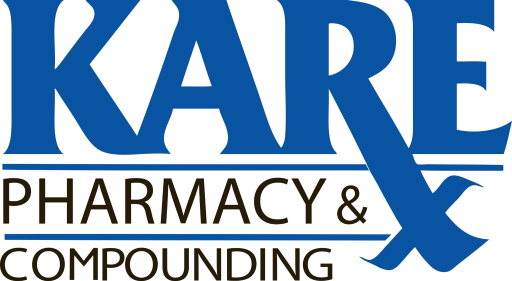
Clinical Information
Use as directed by your healthcare provider. The provider will decide the dose, injection site, and schedule. If you miss a scheduled dose, contact your clinic to reschedule. Do not give yourself extra doses without medical advice.
Hydroxocobalamin is a form of Vitamin B12. In the body it turns into active co-enzymes that help make DNA, red blood cells, and nerve coverings. Raising B12 levels improves energy, memory, and nerve health. Most people feel more alert within a few days, but building healthy blood counts can take several weeks. One injection can last from days to weeks depending on your deficiency and dose.
Do not use if you are allergic to hydroxocobalamin, cyanocobalamin, cobalt, or any ingredients in this product (can cause severe allergic reaction). Do not use if you have Leber’s optic atrophy (may speed up vision loss). Tell your provider if you have kidney disease, low potassium, or a history of blood disorders so they can monitor you closely. Safe use during pregnancy and breastfeeding is generally accepted, but only under medical supervision.
Hydroxocobalamin may interact with:
• Antibiotic chloramphenicol – can weaken your blood response to B12 (moderate, monitor blood counts).
• High doses of Vitamin C taken within 1 hour of the shot – may lower B12 in blood (minor, stagger doses).
• Metformin and acid-reducing drugs (e.g., omeprazole) – can lower B12 absorption over time; you may need more frequent shots.
• Folic acid in very high doses – can hide ongoing B12 deficiency; use only as advised.
• Alcohol misuse – reduces B12 stores; discuss intake with your provider.
Always list all medicines, supplements, and herbal products you use.
Very common (more than 1 in 10): mild pain, redness, or swelling at injection site – usually fades in a day.
Common (1-10 in 100): headache, dizziness, nausea, feeling of warmth, diarrhea.
Uncommon (1-10 in 1,000): itching, rash, acne-like skin changes, joint pain.
Rare but serious: allergic reaction (hives, trouble breathing, face swelling) – call 911; low potassium causing muscle cramps or irregular heartbeat – seek medical help. Most side effects are mild and go away quickly.
Store in the original, amber (brown) glass vial at room temperature, 68-77 °F (20-25 °C). Keep away from direct sunlight, heat, and freezing. Do not shake the vial. Use only clear, red solution; discard if cloudy or contains particles. Once opened, write the date on the vial and discard any unused product after 30 days. Dispose of needles and syringes in a sharps container. Return expired or unused medication to a pharmacy take-back site or follow local regulations.
Frequently Asked Questions
Q:How often will I need a B12 injection?
A:Your provider decides the schedule based on your blood tests and symptoms. Many people start with weekly shots, then move to monthly maintenance once levels are stable. Do not change the schedule without medical advice.
Q:Can I give the shot at home?
A:Some patients are trained to self-inject after the first few doses at the clinic. If your provider thinks it is safe, they will teach you proper technique, needle disposal, and how to watch for side effects.
Q:When should I feel better after the injection?
A:Energy and mood often improve within a few days. Numbness or tingling from nerve problems may take weeks to months to heal. Keep all follow-up visits so your provider can track progress.
Q:Is this the same as cyanocobalamin?
A:Hydroxocobalamin and cyanocobalamin are both forms of Vitamin B12, but hydroxocobalamin stays in the body longer. This means you may need fewer injections. Your provider will choose the best form for you.
Q:Can I drink alcohol while on B12 shots?
A:Light to moderate alcohol is usually fine, but heavy drinking can lower B12 levels and slow recovery. Talk to your provider about safe limits for you.
Q:What if I am pregnant or breastfeeding?
A:Vitamin B12 is important for both mother and baby. Hydroxocobalamin is generally considered safe, but doses should be set by your prenatal provider. Always tell every doctor you see that you are pregnant or nursing.
Related Products

L-Arginine Injection
Sterile L-Arginine 200 mg/mL solution for injection. This amino acid helps widen blood vessels by raising nitric oxide levels, which may improve circulation, exercise performance, and overall wellness. Only a trained healthcare provider should give this medicine by IV or IM route.

Myers Cocktail
Myers Cocktail is a sterile premixed injection that combines key vitamins and minerals often used to correct short-term nutrient gaps, support normal energy production, and promote healthy immune function. Each 10 mL single-dose vial contains a balanced blend of magnesium chloride, calcium gluconate, ascorbic acid, B-complex vitamins, and hydroxocobalamin B12. The solution is intended for slow intravenous (IV) administration only under the supervision of a licensed healthcare professional. By delivering nutrients directly into the bloodstream, the formulation avoids losses that can occur in the digestive tract and allows rapid achievement of targeted blood levels. This product is preservative-free and compounded in a USP <797> compliant facility.

N-Acetyl-Cysteine Injection
N-Acetyl-Cysteine (NAC) Injection is a compounded sterile solution that supplies NAC at a 20% strength (200 mg/mL). NAC is widely used in hospitals to help protect the liver after an acetaminophen overdose and to thin mucus in the lungs. It acts as an antioxidant by raising glutathione levels in the body. This formulation contains a small amount of preservative so the vial can be used for multiple doses when handled with proper sterile technique.

Naltrexone Tablets
Naltrexone tablets contain a low dose of naltrexone, a medicine that blocks opioid receptors in the brain and body. At low doses, it is often used by healthcare providers to help support weight-management plans and other immune-related conditions, although these uses are not FDA-approved. The tablets are taken by mouth and are made in several dose strengths so providers can tailor therapy to each patient’s needs.
